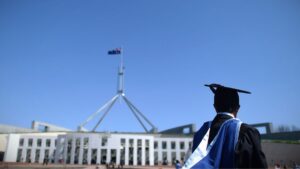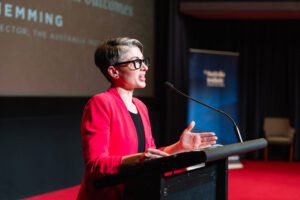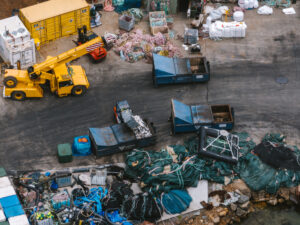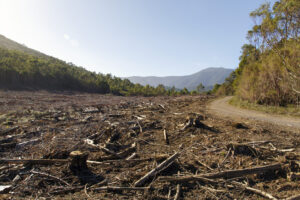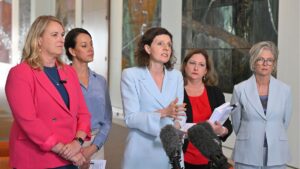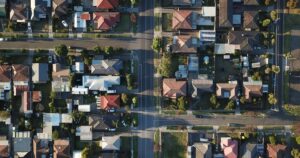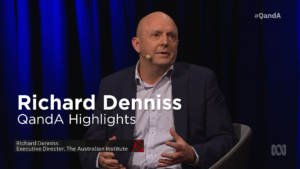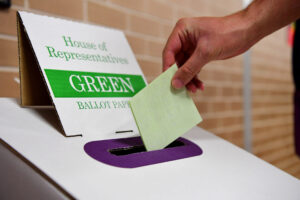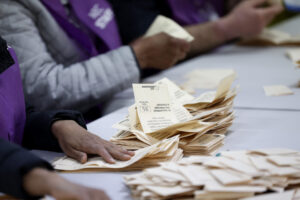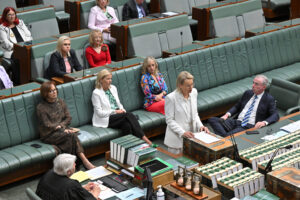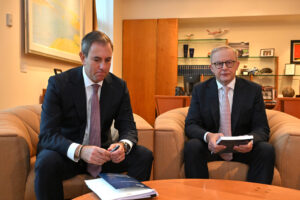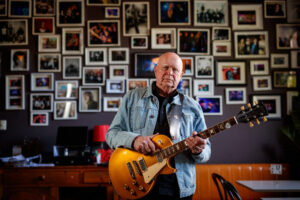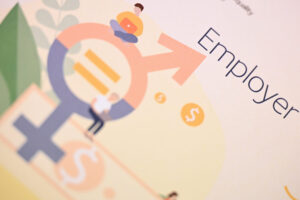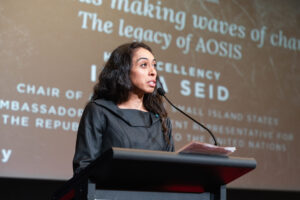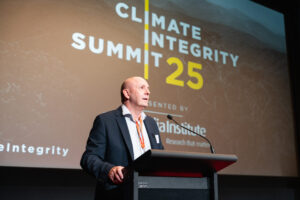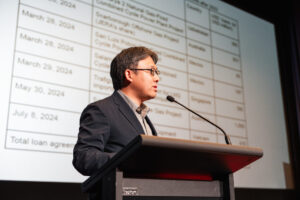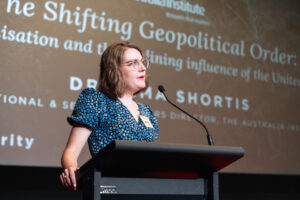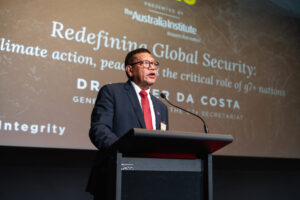Articles
May 2025
Big Gas is taking the piss | Television Ad
Australia, Big Gas is taking the piss. We made this TV ad to make sure people know.
University is expensive, especially so for humanities students
The PM and the education minister have made big noises about easing cost of living pressures for Australians with large HECS/HELP debts. But they’ve been very slow to do anything about the high cost of getting a degree in the first place.
Nearly 40 years of efficiency dividends, and what have we got to show for it?
The size of the public service has been one of the sharper issues in this election campaign. But so far, the debate has been about “cuts” or “no cuts”, “working from home” or “back to the office you go”.
A closer look at the Coalition’s economic promises
The Coalition costings arrived at the last minute… and it was quickly obvious why.
5 ideas for a better Australia (missing from the election campaign)
We’re in the final days before the 2025 Federal Election. Sifting through slogans and dodging dreary debates, the team at the Australia Institute has put together a list of practical ideas that have been missing from the mainstream.
Five reasons why young Australians should be pissed off
1. Uni graduates pay more in HECS than the gas industry pays in PPRT University used to be free but is now more expensive than ever. After graduating with an arts degree a young Australian will now repay the government around $50,000. Meanwhile, Australia is one of the world’s largest gas exporters, but multinational gas
April 2025
Letter to the UN to assess Tasmanian salmon farm environmental damage
On Sunday in Hobart over 6,000 people protested against the harmful practices of foreign owned salmon industry in Tasmania. The Australia Institute’s Tasmanian director, Eloise Carr, spoke to rally participants about recent changes to national nature laws and how the Institute has raised this issue with the UN. Seventeen civil society organisations have written to
Five priorities for the next parliament if we want a liveable Australia
Climate and nature crises won’t pause while politics plays out.
Who votes with whom? Beware claims that use voting records to argue politicians have similar views
Sky News says community independent MP Allegra Spender supports more Coalition motions than Greens motions. But They Vote for You says Spender votes with Greens MPs more often than Coalition MPs. That both those claims are made about the same person is proof that voting comparisons are fraught. It is just as confusing when it
The four things (mostly) missing from the major parties housing platforms
The housing crisis continues to grip Australia and it’s a central part of this election campaign. Unfortunately, while both major parties have made housing policies key parts of their election platforms their policies mostly tinker around the edges and fail in four key ways. They do not address Australia’s distortionary, expensive, and regressive tax concessions
Busting myths on Q+A | Richard Denniss highlights
How is it that in Australia, one of the richest countries in the world, we feel poor?
Is there a benefit to coming first on the ballot?
Today the AEC promised “bingo cages, blindfolds and balls” – in other words, they finalised the candidates for the upcoming federal election, and randomly decided which order they will be displayed on the ballot paper.
Australia’s paper tigers – the state of news competition
A competitive and diverse news industry is key to a democratic society, keeping institutions accountable and transparent. But the ability of Australia’s Fourth Estate to perform that role is increasingly in doubt. Australia was once labelled the “land of the newspaper” by British visitors, with a flourishing and diverse news industry, but for over a
Full preferential voting means you can’t waste your vote
Full preferential voting is a proud Coalition reform – one that benefits every political persuasion Compulsory voting and full preferential voting make up the backbone of Australian democracy, and protect us from voter suppression and disengagement seen in other countries. We owe both to the parties of the centre-right, what would become the Liberal–National Coalition.
Liberal Party will miss its decade-long target for female representation
At the National Press Club today, Shadow Treasurer Angus Taylor was asked about how few women the Liberal Party is nominating as candidates.
March 2025
Commonwealth Budget 2025-2026: Our analysis
The Centre for Future Work’s research team has analysed the Commonwealth Government’s budget, focusing on key areas for workers, working lives, and labour markets. As expected with a Federal election looming, the budget is not a horror one of austerity. However, the 2025-2026 budget is characterised by the absence of any significant initiatives. There is
Budget 2025 Winners and Losers – The Australia Institute
Some quickfire analysis from Greg Jericho, Chief Economist
Commonwealth live music inquiry: sing along with the chorus now…
The Australian Government’s latest report into the state of live music – “Am I Ever Gonna See You Live Again?” – makes some great recommendations, including for: tax offsets to be given to venues that host live music; training and education programs to help foster a love of music among young people; a rebate or
Analysis: Will 2025 be a good or bad year for women workers in Australia?
In 2024 we saw some welcome developments for working women, led by government reforms. Benefits from these changes will continue in 2025. However, this year, technological, social and political changes may challenge working women’s economic security and threaten progress towards gender equality at work Here’s our list of five areas we think will impact on
February 2025
Small Islands making waves of change: Legacy of AOSIS – Ilana Seid | Climate Integrity Summit 2025
Multilateralism plays a vital role in advancing climate justice. The representation of Small Island Developing States in the United Nations – both individually and through alliances such as AOSIS – has played a transformative role in advancing global climate justice and action.
Holding Leaders to Account – Richard Denniss | Climate Integrity Summit 2025
“Demanding better from our leaders is often met with threats like ‘well if you push too hard then you’ll get nothing’.” “Ignore this. It shows you’re winning.” Watch: In his opening remarks, Richard shows how far we have come since the Australia Institute’s first Climate Integrity Summit 3 years ago. Wrapping the Summit up, Richard
Beyond the Energy Security Myth: Japan-Aus LNG – Yuki Tanabe | Climate Integrity Summit 2025
This session exposes the myth that Japan’s energy security depends on Australian LNG imports and reveals that the energy “security” narrative by policymakers serves commercial interests rather than reflecting genuine energy vulnerability or regional instability.
The Shifting Geopolitical Order – Dr Emma Shortis | Climate Integrity Summit 2025
Dr Emma Shortis will examine the United States’ changing influence and the broader reconfiguration of the global geopolitical landscape.
Redefining Global Security – Dr Helder da Costa | Climate Integrity Summit 2025
Representing conflict-affected countries, the g7+ advocates for sustainable, inclusive solutions to address the interconnected challenges of climate resilience, peacebuilding, and development.
Real Zero. Real corporate leadership – Dr Shanta Barley | Climate Integrity Summit 2025
Too many corporate and government climate strategies continue to rely on offsets, carbon capture and storage and the land and ocean’s natural ability to absorb carbon.
Integrity at home shapes global outcomes – Polly Hemming | Climate Integrity Summit 2025
Despite frequent claims that Australia is ‘too small to make a difference,’ historical evidence demonstrates our nation’s outsized role in influencing international norms and policies.
Communicating with integrity: Building foundations for climate action | Climate Integrity Summit 2025
Robust, science-based climate action depends on the integrity of communication—including in journalism, advocacy, and the regulation of information.
Intergenerational Climate Equity – Senator David Pocock | Climate Integrity Summit 2025
As we face the escalating impacts of climate change, the decisions we make today define the opportunities, rights, and wellbeing of future generations.
Creating jobs and building a good society while meeting the global warming challenge – Doug Cameron | Climate Integrity Summit 2025
Far from costing Australians, decisive climate action will, in fact, strengthen Australia’s economy, security, community wellbeing and international influence.
Australia and the Pacific ‘Family’ – Savenaca Narube | Climate Integrity Summit 2025
As economic challenges in Pacific Island Countries are compounded and exacerbated by the climate crisis, the strength of what the Australian Government calls ‘the Pacific family’ is being tested.
General Enquiries
Emily Bird Office Manager
mail@australiainstitute.org.au
Media Enquiries
Glenn Connley Senior Media Advisor
glenn.connley@australiainstitute.org.au

